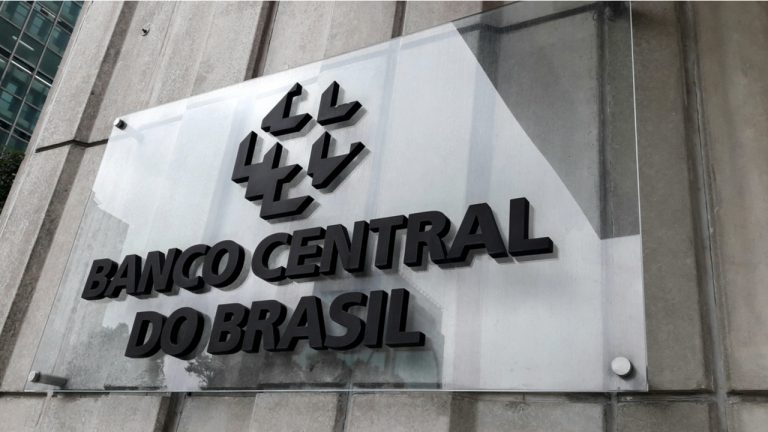 The Bahamas, the first country to issue a central bank digital currency (CBDC) called the Sand Dollar, is preparing regulations to mandate commercial banks to provide access to the e-money to boost adoption. Central Bank Governor John Rolle indicated that these regulations would be implemented within two years. “We’ve begun to signal that to our […]
The Bahamas, the first country to issue a central bank digital currency (CBDC) called the Sand Dollar, is preparing regulations to mandate commercial banks to provide access to the e-money to boost adoption. Central Bank Governor John Rolle indicated that these regulations would be implemented within two years. “We’ve begun to signal that to our […]
In addition to recommending financially educating the public in The Bahamas, the IMF hinted at the importance of “robust supervisory and regulatory framework” for digital assets.
Reporting on a consultation with the Caribbean nation on Monday, the IMF said its executive directors “recognized the potential of the Sand Dollar to foster financial inclusion” and recommended the Central Bank of The Bahamas “ accelerate its education campaigns and continue strengthening internal capacity and oversight.” The consultation was somewhat of a departure from several of the IMF’s previous warnings to many countries against the adoption of digital assets — but many of those did not include CBDCs.
The recommendation came following the conclusion of an Article IV consultation in The Bahamas on May 4. According to the IMF, during such a consultation, a team of economists visits a country “to assess economic and financial developments and discuss the country's economic and financial policies with government and central bank officials.”
In addition to recommending financially educating the public in The Bahamas, the IMF hinted at the importance of “robust supervisory and regulatory framework” for digital assets. During an interview at SALT’s Crypto Bahamas conference in May, The Bahamas Prime Minister Philip Davis told Cointelegraph that the region has a regulatory regime in place that will enable crypto businesses to operate within its jurisdiction. Davis’ office also said in April the government would “enable payment of taxes using digital assets” by working with the central bank as well as the private sector.
It was an honor to interview the Prime Minister of the Bahamas for @Cointelegraph at @CryptoBahamas stay tuned for our coverage! #CryptoBahamas pic.twitter.com/67EtQgRQeT
— Rachel Wolfson (@Rachelwolf00) April 27, 2022
Related: IMF urges El Salvador to remove Bitcoin's status as legal tender
To date, The Bahamas and Nigeria are the only two countries to have officially launched CBDCs, but other nations including China have been piloting digital currencies. On May 6, the Bank for International Settlements Monetary and Economic Department said a survey of 81 central banks conducted in 2021 suggested 90% were “engaged in some form of CBDC work,” with more than 60% “likely to or might possibly issue a retail CBDC in either the short or medium term.”
The International Monetary Fund, or IMF, has turned its attention to The Bahamas’ central bank digital currency, the Sand Dollar, and suggested additional regulatory oversight and education.

“We have a vision to transform The Bahamas into the leading digital assets hub in the Caribbean,” said Philip Davis, prime minister of the Bahamas.
Residents of the archipelago nation, the Bahamas, may soon be able to use digital assets including the world’s first central bank digital currency, or CBDC, to pay for taxes.
In a white paper on the future of digital assets released on Wednesday, the Bahamas’ Office of the Prime Minister said the government will begin to “enable payment of taxes using digital assets” by working with the country’s central bank as well as the private sector. In addition, the government plans to work on giving citizens access to crypto with the Bahamian dollar and encourage greater use of the country’s CBDC, the Sand Dollar.
“The Government will endeavour to ensure that digital assets are not used for the evasion of taxes or sanctions, and will seek to ensure compliance with all applicable Tax information exchange agreements (TIEA) and domestic laws and agreed OECD standards,” said the white paper.
In an effort to establish consistency across the branches of government, the Bahamas said it will form a digital asset policy committee as well as a digital advisory panel, or DAP. The former will be chaired by the prime minister — Philip Davis, at the time of publication — with the Financial Secretary, the Central Bank of The Bahamas governor, the executive director of the country’s Securities Commission, and the DAP chair serving as members. The advisory panel will consist of experts from the digital asset space “to keep digital assets and related digital developments, emerging trends, and associated risks constantly under review.”
“We have a vision to transform The Bahamas into the leading digital assets hub in the Caribbean and a global leader in the progressive regulation of businesses in this profoundly innovative space,” said Davis, according to Eyewitness News Bahamas. “While we recognize the extraordinary opportunities afforded by digital assets, we also recognize the risks, and thus we emphasize the importance of effective regulation.”
FOLLOWING- Prime Minister Philip Davis today tabled a White Paper in Parliament outlining “a vision and a framework to guide digital asset policy in The Bahamas” (1/2). pic.twitter.com/Elun7BjkWT
— Eyewitness News Bahamas (@ewnewsbahamas) April 20, 2022
Related: Bahamas central bank prepares national Sand Dollar push for summer
In October 2020, the Bahamas became the first jurisdiction to fully roll out a CBDC. The digital currency, the Sand Dollar, was aimed at driving greater financial inclusion within the archipelago nation of more than 700 islands, roughly 30 of which are inhabited. Major crypto exchange FTX has expanded to the country by registering a Bahamian subsidiary in September 2021.
 The Central Bank Of Brazil, the highest monetary authority of the country, has released a note listing the general guidelines for the design of a hypothetical central bank digital currency (CBDC) for the country. While there are still no concrete steps taken in this direction, at least the document recognizes there have been discussions about […]
The Central Bank Of Brazil, the highest monetary authority of the country, has released a note listing the general guidelines for the design of a hypothetical central bank digital currency (CBDC) for the country. While there are still no concrete steps taken in this direction, at least the document recognizes there have been discussions about […]